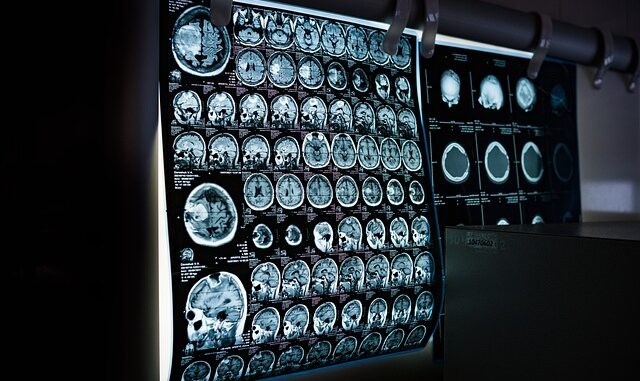
Summary
Artificial intelligence is rapidly transforming healthcare, impacting everything from diagnostics and treatment to drug discovery and patient care. This article explores the exciting advancements and potential challenges of AI in medicine, highlighting its transformative power and the need for responsible implementation. From personalized treatments to streamlined administrative tasks, AI promises a future of enhanced medical care.
** Main Story**
Artificial intelligence (AI) is rapidly transforming the healthcare landscape, impacting everything from diagnostics and treatment to drug discovery and patient care. This article explores the exciting advancements and potential challenges of AI in medicine, painting a picture of a future where healthcare is more efficient, personalized, and accessible.
AI-Powered Diagnostics: Enhancing Speed and Accuracy
AI algorithms demonstrate remarkable capabilities in analyzing medical images like X-rays, CT scans, and MRIs. These algorithms can detect subtle anomalies often missed by the human eye, leading to earlier and more accurate diagnoses. AI-powered diagnostic tools are proving particularly valuable in detecting cancers, identifying fractures, and even predicting the onset of sepsis hours before clinical symptoms appear. This speed and accuracy not only improve patient outcomes but also free up healthcare professionals to focus on more complex cases. Companies like Zebra Medical Vision and Ezra are at the forefront of this revolution, developing AI tools for detecting osteoporosis, breast cancer, and other conditions.
Personalized Medicine: Tailoring Treatment to the Individual
AI’s ability to analyze vast amounts of patient data, including genetic information, medical records, and lifestyle factors, enables personalized treatment plans. By identifying patterns and predicting individual responses to different therapies, AI helps healthcare providers tailor treatments to each patient’s unique needs. This precision medicine approach optimizes treatment efficacy, minimizes adverse effects, and ultimately leads to better patient outcomes. AI is also accelerating drug discovery by predicting how different drugs will react in the body, significantly reducing the time and cost of clinical trials.
Streamlining Healthcare Operations: Boosting Efficiency and Reducing Costs
AI is streamlining various administrative tasks within healthcare facilities. From scheduling appointments and managing electronic health records to processing insurance claims, AI automation reduces administrative burdens, allowing healthcare professionals to focus more on patient care. This increased efficiency not only enhances the overall patient experience but also reduces healthcare costs. Moreover, AI can optimize resource allocation by predicting patient admissions and optimizing the use of hospital beds, staff, and equipment, ensuring resources are available where and when needed most.
The Challenges and Ethical Considerations of AI in Healthcare
While the potential benefits of AI in healthcare are immense, it is crucial to acknowledge the challenges and ethical considerations that accompany its implementation. Ensuring data privacy and security is paramount, as AI systems rely on access to sensitive patient information. Addressing potential biases in algorithms is also essential to prevent disparities in healthcare delivery. Furthermore, the increasing reliance on AI raises concerns about the role of human healthcare professionals and the potential displacement of jobs. Careful regulation and ethical guidelines are necessary to navigate these complex issues and ensure responsible AI implementation.
The Future of AI in Healthcare: A Collaborative Approach
The future of AI in healthcare lies in a collaborative approach between humans and machines. AI will not replace healthcare professionals but rather augment their capabilities, providing them with powerful tools to enhance their decision-making and improve patient care. As AI technology continues to evolve, ongoing research, development, and ethical considerations will be crucial to harnessing its full potential and realizing the vision of a future where healthcare is more effective, personalized, and accessible to all.


AI diagnosing faster than a human eye? Guess I’ll be asking the robot for a second opinion from now on. Maybe they can also diagnose why I keep losing my keys.
That’s a great point! While AI excels at image analysis, I agree it would be fantastic if it could find lost keys, too. Perhaps future AI assistants will be able to track our belongings and remind us where we left them. A digital memory aid would definitely be a game-changer!
Editor: MedTechNews.Uk
Thank you to our Sponsor Esdebe
AI streamlining administrative tasks, eh? Perhaps it could finally decipher those cryptic doctor’s notes. Think it could translate “patient is feeling punky” into something insurance companies understand?
That’s hilarious! “Patient is feeling punky” is definitely open to interpretation. If AI could translate doctor-speak into plain English, it would be a game-changer for everyone involved. Maybe it could even generate pre-approvals automatically! What other medical phrases need decoding?
Editor: MedTechNews.Uk
Thank you to our Sponsor Esdebe